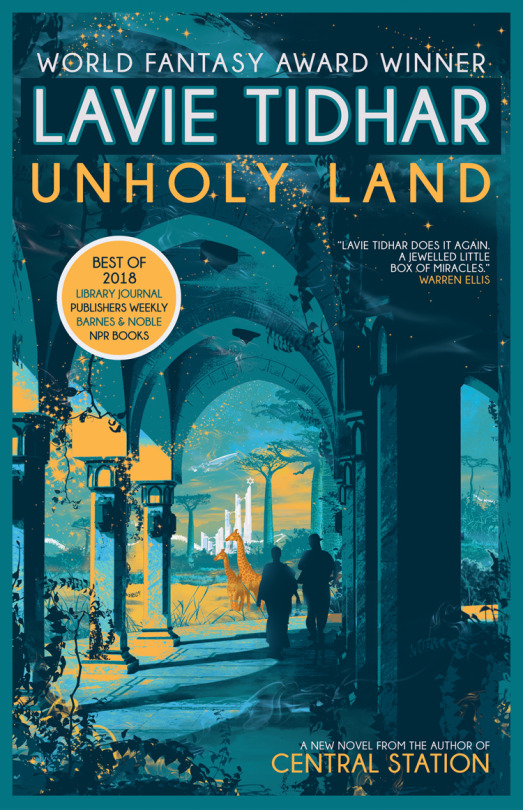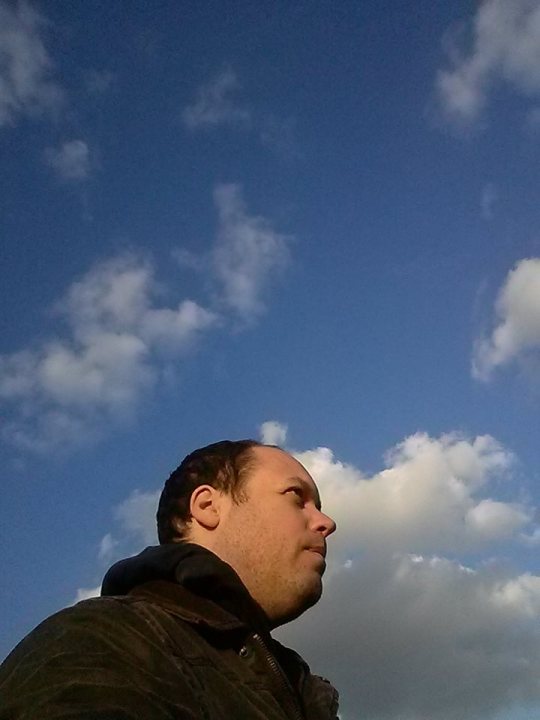Lavie Tidhar’s gripping thriller UNHOLY LAND appears on even more Best of the Year lists
Further accolades for Lavie Tidhar’s damn good UNHOLY LAND.

Joining previous notices from NPR, LIBRARY JOURNAL, PUBLISHERS WEEKLY, THE GUARDIAN, B&N SCI-FI & FANTASY BLOG, CRIME TIME, and THE SPECULATIVE SHELF, both FANTASY LITERATURE (without comment) and THE ENDLESS BOOKSHELF name the novel as one of the best of 2018.
Science fiction is that mode of literature in which the metaphor is to be taken literally. Lavie Tidhar’s gripping thriller follows writer Lior Tirosh on a return visit to his native land, Palestina, a Jewish state established in east Africa at the turn of the twentieth century. All the writings by Tidhar that I have read are deeply intertextual, playing with the ideas of literature, science fiction tropes, and the identity of the writer. Unholy Land is explicitly Clutean in its intertextuality, employing terms and conceits introduced by John Clute in the Encyclopedia of Fantasy (1997). It is great fun, very tricky : a smile painted upon a skull. Tidhar’s other characteristic is fearlessness and UNHOLY LAND is a look into the dark heart of a nation founded upon exclusions and barriers.
Maxim Jakubowski at CRIME TIME says the book is a must.
A novel which can be read on all sorts of levels, each as rewarding as each other, whether as sheer entertainment or serious speculation, making Tidhar a rather unique writer who seldom comes up with the expected and for whom each book is a challenge to the imagination. This is damn good (as was his A MAN LIES DREAMING, which flirted with the dangerous premise of an alternative reality Hitler as both sleuth and second class author…). A must.

In WORLD LITERATURE TODAY, Sean Guynes-Vishniac praises the story.
Like Tidhar’s other work, UNHOLY LAND is a complex and metatextual narrative, moving between first-, second-, and third-person narrators, that theorizes the work speculative fiction does—the possibilities and alternatives it imagines—and questions the worth of the “fantasy” writer in a world where nation-states maintain and legitimize their existence through the oppression of whole groups of people. It is, unsurprisingly, a powerful meditation on the ethics of history and the power of borders, an analogy, no doubt, to the border walls both on the West Bank and in Trump’s presidential promises as much as to the ideologized divides that drive military and state conflict. UNHOLY LAND is a call to imagine and fight for alternatives.
Howard Freedman for THE JEWISH NEWS OF NORTHERN CALIFORNIA enjoys the challenging UNHOLY LAND.
At one level, the novel functions as a sort of hard-boiled thriller, but Tidhar, raised on a kibbutz and now living in Britain and writing in English, is no run-of-the-mill novelist. Rather, he is a significant figure in today’s science fiction scene, and this dimension infuses the novel. The borders in question in Palestina turn out to be not only ones dividing territories, but ones separating different spheres of reality. It gets complicated, and the unconventional storytelling (the narrative is in the first, second and third person) can sometimes make it difficult to assess what’s happening. But the bumpy ride is quite worthwhile.
For more info on UNHOLY LAND, visit the Tachyon page.
Cover by Sarah Anne Langton
